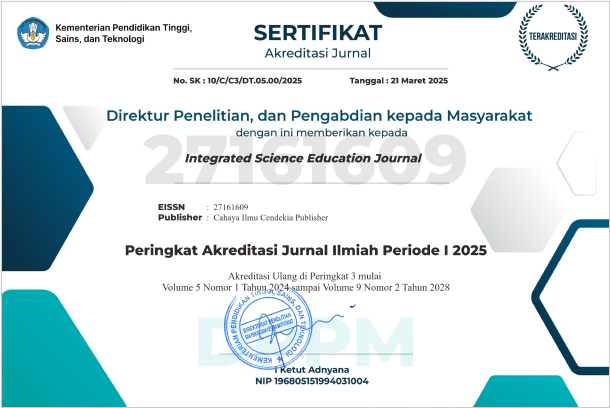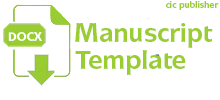Development of Logic-Based Question Classification Methods to Measure the Ability to Ask Questions Essential for Setting Research Questions
Abstract
Purpose of the study: Many learners experience difficulties in generating questions that lead to research questions. This study aimed to present perspectives on questions that inquire into the logic within each type of logical reasoning, propose a new question classification method based on these perspectives, verify its objectivity, and examine participants' logicality.
Methodology: This study deductively developed perspectives and classification methods for questions based on the logical reasoning theory. To verify the question-classification method and examine participants' logicality, 1,164 Self-described questions from 24 graduate-level students were collected. These questions were classified by two raters using qualitative research software, followed by a statistical analysis. Descriptive and inferential statistics were used for the analysis.
Main Findings: Based on the analysis of the question data, the degree of agreement on question classification between the two raters was high. Notably, there was exceptional concordance in categorizing questions asking about deductive reasoning, hypothetical reasoning, and specific questions. Additionally, the analysis of question characteristics revealed a predominant presence of questions asking about inductive reasoning and ambiguous questions. In contrast, there were fewer questions asking about deductive reasoning, hypothetical reasoning, and specific questions.
Novelty/Originality of this study: This research adds a logical perspective to traditional question frameworks and develops objective question classification methods. It provides a framework to support the formation of questions that lead to research questions and a method to objectively assess the quality of learning question formation techniques, with significant implications for educational practices. This study is limited by few raters, few specific questions.
References
L. Valladares, “Scientific literacy and social transformation,” Sci. Educ., vol. 30, pp. 557-587, Apr. 2021, doi: 10.1007/s11191-021-00205-2.
N. Bennett and G. J. Lemoine, “What a difference a word makes: Understanding threats to performance in a VUCA world,” Business Horizons, vol. 57, no. 3, pp. 311-317, Jun. 2014, doi: 10.1016/j.bushor.2014.01.001.
C. Chin and J. Osborne, “Students’ questions: A potentail resource for teaching and learning science,” Stud. Sci. Educ., vol. 44, no. 1, pp. 1-39, Feb. 2008, doi: 10.1080/03057260701828101.
R. D. Vale, “The value of asking questions,” Mol. Biol. Cell, vol. 24, no. 6, pp. 680-682, Oct. 2017, doi: 10.1091/mbc.e12-09-0660.
I. Yanai and M. Lercher, “What is the question?” Genome. Biol., vol. 20, Dec. 2019, Art. no. 289, doi: 10.1186/s13059-019-1902-1.
C. Chin and D. E. Brown, “Student-generated questions: A meaningful aspect of learning in science,” Int. J. Sci. Educ., vol. 24, no. 5, pp. 521-549, May. 2002, doi: 10.1080/09500690110095249.
C. A. Chin and B. A. Malhotra, “Epistemologically authentic inquiry in school: A theoretical framework for evaluating inquiry tasks,” Sci. Educ., vol. 86, pp. 175-218, Feb. 2002, doi: 10.1002/sce.10001.
P. Wittgenstein and C. K. Ogden, Tractatus Logico-Philosophicus. New York, NY, USA: Dover Publications, 1998.
K. Popper, The Logic of Scientific Discovery, 2nd ed. Evanston, IL, USA: Routledge, 2002.
T. S. Kuhn, The Structure of Scientific Revolutions, 2nd ed. Chicago, IL, USA: University of Chicago Press, 1970.
A. King, “Inquiry minds really to do want to know: Using questioning to teach critical thinking,” Teach. Psychol., vol. 22, no. 1, pp.13-17, Feb. 1995, doi: 10.1207/s15328023top2201_5.
A. Astalini, D. Darmaji, Dwi Agus Kurniawan, H. Jaya, and Sri Muslimatul Husna, “Analysis of teacher responses to the use of web-based assessment to assess students’ attitudes towards science subjects,” In. Sci. Ed. J, vol. 3, no. 3, pp. 66-71, Sep. 2022, doi: 10.37251/isej.v3i3.282.
H. Harizon, “Description of teacher responses to the implementation of student process skills portfolio assessment,” In. Sci. Ed. J, vol. 4, no. 3, pp. 128-134, Sep. 2023, doi: 10.37251/isej.v4i3.731.
D. De Vaus, Research Design in Social Research. Newbury Park, CA, USA:Sage, 2001, P. 1-2.
P. White, “What makes a research question,” in Development Research Questions, 2nd ed. London, UK: Palgrave Macmillam, 2017, PP. 56-59.
Aristotle, Aristotle’s Posterior Analytics. 1901(Transl.: in E. S. Bouchier, Whitefish, MT, USA:Kessing Publishing, 2010)
J. T. Dillon, “The classification of research questions,” Rev. Educ. Res., vol. 54, no. 3, pp. 327-361, 1984, doi: 10.3102/00346543054003327.
C. Chin and G. Kayalvizhi, “Posing problems for open investigations: What questions do pupils ask?” Res. Sci. Technol. Educ., vol. 20, no. 2, pp. 269-287, Dec. 2002, doi: 10.1080/0263514022000030499.
F. Ikeda, “What are scientific questions?” Journal Higher Education and Lifelong Learning, vol. 28, pp. 35-43, 2021,
A. H. Barton, “The concept of property-space in social research,” In The Language of Social Research, P. F. Lazarsfeld and M. Rosenberg, Eds., New York, NY, USA: Free Press, 1955, pp. 40-53.
C. S. Peirce, “Deduction, induction, and phypothesis,” Popular Science Monthly, vol. 12, pp. 470-482, 1878.
Y. Michita, “What is logical thinking?” Bulletin of College of Education., University of the Ryukyus, vol. 63, pp. 181-193, 2003, doi: 20.500.12000/528.
Y. P. Gnawali, “Use of mathematics in quantitative research,” Ganeshman Darpan, vol. 7, no. 1, pp. 10–15, Dec. 2022, doi: 10.3126/gd.v7i1.53528.
E. Iiker, A. M. Sulaiman, and S. A. Rukayya, “Comparison of convenience sampling and purposive sampling,” American Journal of Theoretical and Applied Statistics, vol. 5, no. 1, pp. 1-4, Dec. 2015, doi: https://doi.org/10.11648/j.ajtas.20160501.11.
J. Gilmore, M. Vievra, B. Timmerman, D. Feldon, and M. Maher, “The relationship between undergraduate research participation and subsequent research performance of early career STEM graduate students,” J. High. Educ., vol. 86, no. 6, pp. 834-863, Nov. 2015, doi: 10.1080/00221546.2015.11777386.
I. Junichi, “Effect of self-generated questioning in a college lecture class on learners’ ability to ask questions,” Bulletion of University of Teacher Education Fukuoka, vol. 67, no. 4, pp. 46-55, 2018. Accessed: May, 23, 2024. [Online], Available: http://purl.org/coar/access_right/c_abf2
T. Kariya, The Principles of Compound Eye Though: The Creative PowerSswitch That Everyone Has. Tokyo, Japan: Kou Dan Sya (in Japanese), 2002.
D. Miller, R. Linn, and N. Gronlund, Measuremen and Assessment in Teaching, 11th ed. London, UK: Pearson, 2012.
R. Reeder, T. Stein, and M. V. Peelen, “Perceptual expertise improves category detection in natural scenes”, Psychonomic Bull. Rev., vol. 23, pp. 172-179, Jun. 2015, doi: 10.3758/s13423-015-0872-x.
L. Busetto, W. Wich, and C. Gumdinger, “How to use and assess qualitative research methods,” Neurol. Res. Pract., vol. 2, no. 14, May. 2020, doi: 10.1186/s42466-020-00059-z.
S. Margaei, F. A. Yazdi, and M. Chandrashekara, “MAXQDA and its application to LIS research,” Education, Computer Science, Mar. 2019. Accessed: May, 23, 2024. [Online]. Available: https://api.semanticscholar.org/CorpusID:155504878
R. Delgado, and X. A. Tibau, “Why Cohen’s Kappa should be avoided as performance measure in classification,” PLoS One, vol. 14, no. 9, Sep. 2019, doi: 10.1371/journal.pone.0222916.
T. Saito, “学校教育における定期テストに関する研究の動向,”(in Japanese), Annual report of the Education Network Center, Graduate School of Education, Tohoku University, Miyagi, JP, Rep. vol. 16, 2016. Accessed: May, 6, 2024. [Online]. Available: https://www2.sed.tohoku.ac.jp/~edunet/annual_report/2016/16-05_saito.pdf
L. Nahar, “The effects of standardized tests on incorporating 21st century skills in science classrooms,” In. Sci. Ed. J, vol. 4, no. 2, pp. 36-42, May. 2023, doi: 10.37251/isej.v4i2.324.
Copyright (c) 2024 Li Qiu, Fumihito Ikeda, Naoko Yamashita

This work is licensed under a Creative Commons Attribution 4.0 International License.
Authors who publish with this journal agree to the following terms:
- Authors retain copyright and acknowledge that the Integrated Science Education Journal is the first publisher licensed under a Creative Commons Attribution 4.0 International License.
- Authors are able to enter into separate, additional contractual arrangements for the non-exclusive distribution of the journal's published version of the work (e.g., post it to an institutional repository or publish it in a book), with an acknowledgment of its initial publication in this journal.
- Authors are permitted and encouraged to post their work online (e.g., in institutional repositories or on their website) prior to and during the submission process, as it can lead to productive exchanges and earlier and greater citation of published work.







.png)
.png)






